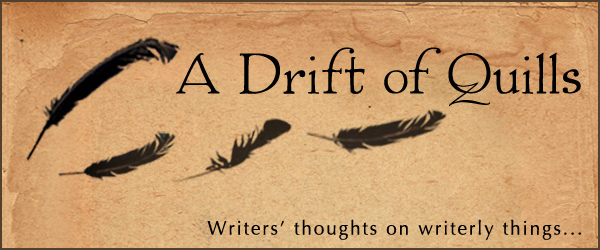
This month is exciting. For one, it’s May. April showers have brought May flowers. So, there’s that. Then, Avengers: Endgame came out. It was, for various reasons, phenomenal. I won’t spoil it for you. It’s worth the price of admission.
Finally, our writer’s collective is sharing short stories this month (our most popular topic), written from a common image and, interestingly, relating somehow to our published work. I’ll share the picture several times in the story below.
And here’s where I’m thrilled. Below is a snippet of story that you’ve never read, but, if you’ve followed Essie’s chronicles, you’ll recognize the characters immediately.
These are parallel openings to Nightrage Rising – if you haven’t heard the tale, no fear! There’s no better place to jump in. If you have read Nightrage Rising, you’re in for a special treat, from a new perspective…
 Parker Broaddus
Parker Broaddus
Author of A Hero’s Curse & Nightrage Rising
Follow along on Amazon

Tigrabum Fendor, or “Tig,” is Essie Brightsday’s talking cat. No, that is not normal. Nor is his unusually condensed amount of sarcasm. Tig trained Essie to listen, taste, feel, smell and sense like no one in her family. He despises all things wet.

Tigrabum Fendor had never been, nor ever would be, an ordinary cat, thank you very much. He examined the new pin that had been placed in the latch and chuckled silently. When would they learn?
He pried a paw between the crate and the pin and wiggled the latch. The addition of a pin added a finesse requirement and five extra seconds before he freed the lid. He hopped up on his hind feet, resting his forepaws against the crate to look around the dock. Nobody had noticed him yet. He hooked his paw under the lid and lifted. Hundreds of blank, white eyes stared up at him, cold and unfeeling.
Tig swiped a sharp claw down into the box and snagged the nearest dead fish. It flopped onto the dock with a squelching thud. He pulled the lid back into place and snatched his catch in his teeth. The fish’s bulk didn’t quite make it off the ground, causing the head to bounce unceremoniously across the cobbles.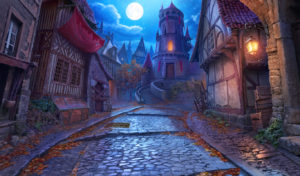
Nel “Baby Face” Gorchsand glowered across the dock, certain he had heard something knocking, but he just missed the gray striped tail whip into the narrow alley between the harbor patrol station and the merchant record keeper’s. Baby Face, who acquired his nickname not because he looked babyish but because he frightened infants with his large, flat face and tiny squashed nose, squinted through bushy eyebrows and shrugged his beefy shoulders. Just as he hadn’t been recruited by the harbor patrol for his good looks, neither had he been recruited for his intelligence.
Tig watched from the dark of the alley as he stumped back toward the middle of the docks, mumbling unintelligible swear words and doing what he had been recruited for—looking formidable—at least to anyone who didn’t know him.
Tig sighed and spoke to the dead. “If they were really concerned about the blue iron that got stolen off the ships, they should’ve posted somebody besides Baby Face.” The fish didn’t blink. Tig smirked. “Not the talkative kind, huh?”
The soft clunk of boots echoed down the wooden dock. Tig stuck one eye, a nose and a couple of whiskers around the corner to investigate. “Well, well.” He said it admiringly, and a gleam came into the one eye. “Amberfal. A watch commander. And Protector Godred.” He glanced back at the fish. “Maybe we’re in luck. Maybe it’s a big deal after all.”

Illiana is a servant girl and refugee from the Kingdom of Aeola who works in the Palace, but struggles to find her place in her new surroundings. She is Essie Brightsday’s close friend, likes to see the best in others, is a good listener, and even better talker. (This section was published once previously, under the title “Song Girl“)

Illiana could sing. Song ran in her veins. It called in her ears. It lived in her mouth. It danced in her eyes.
And so it should. Her native Kingdom above the Sun—Aeola—was built by the cloudweavers, who use music to bind the elements. For, as they have said since The Beginning, music is stronger than magic.
But though she could, Illiana did not, in fact, sing.
It wasn’t because she had lost her parents when she was very young. Though that was true. It wasn’t because she worked as a servant in the palace, though that was also true.
She didn’t feel sorry for herself. She felt grateful that she had been invited by King Mactogonii to the Kingdom of Mar after the Aeolan council banished her from her homeland for thievery and treason. Never mind it was a onetime thing.
In fact, if you had asked Illiana why she didn’t sing, she probably couldn’t have told you.
It troubled her, when she thought about it. So she tried not to think about it. She tried not to think about the Kingdom of Aeola either. She tried to forget the way the melody wove through the air—even the very ground. She knew that her best friend Essie could hear the notes sometimes, when it rained. But Essie could hear and sense more than most. As hard as Illiana listened, she couldn’t hear the cloudweavers music in the rain.
So she didn’t think about it. Any of it.
But she missed it, just the same.
***
“Strange goings on,” Milp muttered to herself, punching the pillow a bit more violently than it deserved. She tweaked the corner and set it against the arm of the couch, surveying the effect. “Fire and blastin’, splinterin’ to little pieces,” she grumbled.
Illiana knew better than to ask Milp what she was talking about. Stay quiet and listen was the best way to handle Milp. “Folks thinkin’ somethin’ can be had for nothin’,” she continued. Illiana swept the last of her pile of dust into a bunch and gathered it up. Milp whipped around, pointing a bony finger in Illiana’s face. “But everything’s got a cost!”
Milp shuffled off, hunched and angry, throwing fresh blankets over the bed like they had personally offended her. The tower smelled clean. Not that it had smelled bad when Illiana and Milp arrived this morning—just dusty and unused, with that stale, stuffy odor a place that has been shut up for too long gets.
The arched windows in the tower above the archives let in a welcome breeze that carried with it the sound of the city. Illiana ran a finger along the sill, making sure it came away speck free. Small blackbirds with yellow breasts chirped from a nest on the outside ledge, shrill and angry at the intrusion. Illiana breathed in deep and smiled. “It’ll be nice for whoever moves in up here.” The mother blackbird ruffled her feathers as if imitating Milp and turned her back on Illiana.
Illiana could see the main street, Market Way, crawling all the way from the city gates, through the Trade District, and finally ending here, at the palace. There was nothing unusual in the busy main street, bustling with hawkers, shoppers and general activity. Except one thing. A tall woman with silver gray hair moved purposefully through the erratic throng, clearing a neat path as she swept a long stick in front of her. She wore a blindfold. Behind the woman plodded a squat, fat donkey, whose back was heaped with neat bundles tied in an intricate web.
Illiana leaned further out the window as the stranger headed for the courtyard below, passing out of view. It felt unusual to see a blind person move with such confidence. Illiana had only seen that in Essie.
“Let’s go!” Milp snapped. Illiana shrugged and followed Milp out the tower, down the circular steps, and past the public archives. She was done for the day. She left Milp with a cheery goodbye, which was met with more grumbled complaining, and trotted toward Market Way, headed for the city stables on the other side of Blacksmith’s Row.
She would meet Essie—and Tig, of course—on schedule at noon. A blind stranger in Plen—that would catch Essie’s attention. It might even be enough to pull her out of her obsession over her Arcane Academy rejection for a few minutes.
 Illiana checked her own thoughts for a moment. The street felt odd today. She slowed her walk, paying more attention to the babbling noise around her. The chatter in the street was animated and happy. Folks were trading and buying and selling and gossiping. But there. An old man threw her a quick glance from a conversation with two dressed like farmers from up the valley, snapping his mouth shut in a thin line as she passed. Illiana blushed and quickened her pace. That was it. Some news was running through the city—but what kind of gossip would turn the Trade District and the valley folk on the palace staff? She could only stand the stares and little silences for another block. She slipped behind a market stall and between a row of shop fronts, spilling into a quiet back street. As she turned the corner she nearly ran into a boy who looked about her own age, or maybe a bit older. It was hard to tell as he kept his head down behind a heavy looking box of braided and polished steel.
Illiana checked her own thoughts for a moment. The street felt odd today. She slowed her walk, paying more attention to the babbling noise around her. The chatter in the street was animated and happy. Folks were trading and buying and selling and gossiping. But there. An old man threw her a quick glance from a conversation with two dressed like farmers from up the valley, snapping his mouth shut in a thin line as she passed. Illiana blushed and quickened her pace. That was it. Some news was running through the city—but what kind of gossip would turn the Trade District and the valley folk on the palace staff? She could only stand the stares and little silences for another block. She slipped behind a market stall and between a row of shop fronts, spilling into a quiet back street. As she turned the corner she nearly ran into a boy who looked about her own age, or maybe a bit older. It was hard to tell as he kept his head down behind a heavy looking box of braided and polished steel.
“I’m sorry!” Illiana skipped to one side, but the boy ignored her and staggered off with his load. She shrugged. “Rude.”
She didn’t even realize she had finished the trip to the stables until she heard Cragg, a stable manager, call her name.
She smiled. “And good day to you Mr. Cragg.”
“Goin’ by yourself today?” Cragg asked. His knobby hands were swollen and bent with age. He couldn’t lift heavy things anymore, but no one could match him for handling the horses. He handed her a couple of twisted, tuber-like carrots.
Illiana’s smile slipped. “Essie’s not here?”
Cragg scratched at his untidy beard and shook his head. “Not yet. Haven’ seen her cat neither.”
Illiana spent the next little while brushing Champie, her big bay gelding. She looked him in the eye. “It was probably nothing. Just my imagination.” Champie nodded. Encouraged, Illiana broke off a piece of carrot and offered it in the palm of her hand. “Most of the palace staff are from the Trade District anyway…”
Champie crunched and drippled carrot pieces all over her arm. Illiana brushed them off absently. “But the fire last week on Nobble Street was real.” She pulled at Champie’s forelock. “And nobody believes the protectors report that it was started by ‘natural causes.’”
The tower bell sounded, far away, noting the time change. She had been brushing Champie for an hour. Even running late, Essie should have been here by now. She looked over at Tangerine, Essie’s short, sleek, black mare. Tangerine tossed her head as if to say, “I know as much as you do.”
Illiana cleaned out Champie’s stall, even though she didn’t have too. She shared the rest of the carrots with Champie and Tangerine. But by late afternoon, it was evident.
Essie wasn’t coming.

Sam Waltborn is a commoner who lives in the Trade District, on Blacksmith’s Row. Slightly autistic, Sam is a brilliant blacksmith with a knack for engineering, a dislike for people, and a soft spot for dogs.

Nobody called him Sam, even though that was his name. Folks didn’t call him much of anything. He was awkward and withdrawn and his parents hadn’t brought him out much, due to the fits. The shaking. The outbursts.
That was before. He was better now, some. He could go out. Even by himself. Then his ma died.
“Terrible tragedy. He’ll go off for sure,” they would whisper, in a carrying sort of way that could be heard for miles.
But Sam didn’t go off, or go under, or go anything. He stayed Sam. Quiet. Withdrawn. Smart. When they called him ‘rude,’ he didn’t mean to be. But he didn’t care much either.
So it continued to be easier for them to ignore Sam, even though he ran errands for his pa, picking up steel or dropping off orders all over Blacksmith’s Row, and even further up the Trade District, all on his own.
***
Clank and Jangles contracted with the public stables. The smell of horses and hot iron mixed strong in their barn-like shop, and barrels of horseshoes, all different sizes, stood along the wall in front. Bree owned Clank and Jangles and could be called the finest farrier on Blacksmith’s Row. He could also be called other things, some nice, some not so nice. The not so nice things weren’t usually said to his face, as it was piggish and mean, and his arms were bullish and huge. Sam ducked in the side door with an armload of fine, braided steel, shaped for bits and bridles. At one time all the fine steel in Sam’s arms would have been shaped and cut and polished by his pa. Now it could have been either of them. But only Sam knew that.
Bree hunched over the bellows, stoking his fire. Another craftsman lounged against the anvil rack, idly swinging a pair of tongs. Bree’s eyes passed over Sam like they would a discarded horseshoe. Disinterested and bored. Sam didn’t need instructions. He carried his burden to the bins set beside the barrels in front of the barn. Leather straps, some thick, some thin, hung from the wall, ready to cut for reigns or harness. Sam sorted his polished work into the bins. Bree knew his work wasn’t fine enough for a bridle, or a bit in a horse’s mouth.
Only a few steps away at the forge, Bree nodded in a morose sort of way, finishing some conversation interrupted by Sam’s appearance. “Never did like the looks of ‘im.”
Hol grunted and dropped his voice. “Some folks visited Tran.”
Bree gave the slightest of shrugs. “Yeah?”
“Magic folk. He says, they says,” Hol glanced at Sam, and dropped his voice even further, but he was still quite audible in the large, hot room—blacksmiths rarely know how to be quiet, “magic, is for all. Everybody. Not jus’ protectors and heroes.”
“Magic.” Bree snorted, coughed, and hacked something sticky to the floor. “Air. Hot air. Tavern talk.”
Hol grabbed Bree’s arm, a fierce glint in his eye. “These innit just talkers Bree. Davus, over on Brickstone, they healed his daughter.”
Bree delivered a slow look at Hol’s hand on his arm. Hol dropped the offending hand apologetically. “It’s true Bree,” he insisted. “Tran saw her, walkin’.”
Bree’s eyes narrowed. “Walkin’? Davus’ girl? She never walked. Her legs is all froze up.”
Hol’s face glinted feverishly in the firelight. “That’s what I’m sayin’, if’n you’d listen. No waiting on the healer’s lists. Just—” Hol made a little gesture toward his legs.
Bree chewed on his lip a minute, then turned back to his forge. “That innit just a cold. That’s a lot ‘o magic. Lot o’ power.” He pinched a glowing piece of iron with his own set of tongs, turned it over and pushed it deeper into the fire before facing Hol again. “It’s illegal. That kinda thing will upset the system. Bound to be dangerous.”
Hol grinned. “Only to those who don’ want to share.”
Sam realized he had finished his sorting. He shuffled to his feet and glanced at the men on his way to the door, but they ignored the invisible boy.
That evening after supper Sam squatted on the hearth with a puzzle he had made of interlaced hoops. There was a way to pull them apart and put them together again. His pa had tried it, but couldn’t figure how it was done. Sam’s hands disassembled the loops automatically, as he watched his pa stir a mug of tea. Everyone called his pa, “Waltborn.” No one used his first name.
Waltborn continued to stir his no longer hot tea and stare into the fire. A log popped and the flame crackled. Sam studied the shadows on his face. The lines ran deep. Like canyons. His pa had always had lines in his face, but they used to be caused by a deep laugh, unguarded and unchecked.
Sam wondered if his pa had heard about the “magic folk” yet. Probably. News in the Trade District traveled like spilled water. Impossible to hold and filling every crack.
“Pa?” Sam asked. Hesitant.
Waltborn twitched. His eyes moved to his boy—a young man now, if he was honest—sitting in front of him on the hearth.
Sam toyed with the puzzle in his hands, nervous. “If there was some way Ma could have lived—well, I mean—she’s gone now, and there’s no use in trying to bring her back.”
The firelight threw shadows over the room. Sam watched his pa’s face. Deep shadows hooded his dark eyes. Even the light from the flames seemed to be sucked into the blackness and disappear. There was no light, no reflection. Just darkness.
“I suppose so,” he sighed, his voice weary. Heavy.
Sam’s fingers relaxed. He nodded. “You wouldn’t try to do something though—try to make it right? I mean, we can’t. Except like you said, just keep doing what she’d want us to do.”
If Waltborn heard him, he didn’t respond. He just stared into the fire. Sucking the light of the flames into his eyes and holding it prisoner there.
Sam stood to leave, but patted the large shoulder on his way past. “I miss her too, Pa.”
Late that night, from somewhere nearby, a muffled explosion sounded. The rumble shook the small shopfront, hanging tools tinkled against each other on the wall, and all was still.
Sam’s eyes opened wide. Had it started? He looked across the bedroom at the bulky lump that was his pa. Still here. Sam relaxed, the tension easing. Let it begin then. They had weathered worse.

Essie Brightsday is a young blind girl, and the primary heroine in The Unseen Chronicles. She is stubborn, curious and loves to ride horses, (which she discovered in A Hero’s Curse), and is now caught in the middle of an impending civil rebellion in Nightrage Rising.

Running for my life was not a part of the plan. To be fair, there hadn’t really been a plan. Which is why I’m hurtling down unfamiliar streets with three Ratcliff thugs on my tail.
The narrow alleys in the Wayfair District save my life—the three behind me are big and bulky. They can’t move as quickly as I can between these buildings. I may be blind, but Tig has trained me for this. Well, maybe not this exactly; but I can still feel, taste, smell and sense like no one else in my family.
Blood pounding in my ears makes it difficult to hear—difficult to navigate. Sooner or later, I’ll end up at a dead end, which will turn literal in a hurry. The echoes bouncing off the stone on either side of me finally open up, giving me the break I’ve been hoping for. I launch myself over the low wall I’m running next to in an attempt to get out of this alley and back around to the more hospitable parts of Plen.
Except, there is no street on the other side. In fact, there’s nothing. My feet drop out from under me and I feel a whooshing in my stomach before I land with a squelch at the bottom of a slick refuse channel. I didn’t say I was perfect. I’m still blind, after all. The stench is overwhelming. I could kick myself for missing that before I jumped. In my defense, most of the Wayfair smells this way. I try to stand but I can barely get a footing in the sludge around me.
The heavies come stamping to a halt, breathing hard in the alley above me. My dead end. I face them as proud and defiant as I can, which is tough since I can barely stand and I’m covered in filth. As much as I wish Tig was with me today, at least he isn’t seeing this.
“You’re in tha wrong parta Plen, Missy,” growls one of the thugs, his accent thick with the Wayfair. “Bin listenin’ on tha wronga bunch. Nobody spies on tha Ratcliff gang on they’s own turf.” He pauses, apparently taking in the red bandana I wear across my eyes. “Canna believe a blind wench gave us such a run. Sorcery no doubt. Bren, get down an’ hit ‘er o’er tha head—careful if she got magic in her.”
“Blow offn. That’s a nasty spot down there. You git in tha drink and knock ‘er ‘ead.” Apparently Bren doesn’t want to get dirty. Which is ironic since I can smell them over the sewer drain.
“Carnie—you was slow at tha last killin’ job. Dinna do naw but stand and wheeze. It’s yourn turn. You get ‘er.”
Carnie responds with a rasp of steel and the chink of stone. He must be clambering down the wall into the canal. “I git ‘er boots,” he giggles.
“I’m Essie Brightsday! First Champion Killian Brightsday’s daughter. I’m worth a ransom!” I blurt in desperation. As soon as Dad hears where I’ve been, he’ll kill me, but at least I won’t die in a sewage canal—probably.
“Well, Essie Brightsy, even if ya are who ya say, ya innit worth near enuff that Boss Champs wudn’t want us ter keep ya quiet.”
“But wouldn’t Boss Champs want the ransom? You’ll lose it for him by killing me!”
Carnie plops into the canal a few feet from me. I scramble backward, but he just chuckles. “You’ve nowhere to run now missy. An’ Boss Champs don’ care about monies. He jus likes bein’ left alone like. He’ll send you back to the nicer parts of Plen as a warnin’. Stay out.”
“I can tell them—I can send that message!”
 “Oh, you’ll send the message all right—”
“Oh, you’ll send the message all right—”
Something thumps and the rustle of silk carries from the alley above, behind the two thugs. “A little far abroad for the Ratcliff Gang, aren’t we boys?” says a smooth, feminine voice with a slight accent. She sounds foreign to our Kingdom of Mar.
“This here’s Ratcliff business and that makes it our’n turf. Ain’t got nobbit to do with you, ya smarmy magic-eatin’ cultist—”
“Ah—language.”
A blast of heat tears through the alley above, knocking me flat. I scramble up from the sludge for a second time.
Carnie swears violently. “What’d ya do wi’ ‘em?”
“Ash and wind,” she says. “What Rats deserve.”
“Boss Champs will level ya! All of ya!” Carnie screams. “Ya purple-robed magic eaters is nuthin’ in the Wayfair! He’ll rip ya apart!”
“Quiet,” orders the woman above. Carnie makes a choking sound as his tirade stops short. “Tell Champs that Nightrage is now at war with the Ratcliff Gang.”
Carnie resumes in a gurgling whisper. “He’s—tha beatin’ heart—o’ tha Wayfair! He rules ‘ere, stronger than a—king ever was! He’ll eat ya alive! You’ve done announced yer—war!”
“You’re right. I don’t need you after all.” The smile in her voice raises the hairs on the back of my neck.
This time I feel the heat build and I dive to the side of the drain before it erupts again. I still feel the hot wave wash through the canal and for a terrifying second I can’t breathe.
I retch and stagger to my feet for the third time. Not one of my better days.
“Here girl,” the woman beckons.
What choice do I have? And I am so done with the sewer. I crunch across the now dry canal, my foot kicking through a pile of ash on the way. A soft hand grabs mine and hoists me easily over the wall and back into the narrow alley.
“Thanks.”
“Can’t have the first champion’s daughter getting tossed in a canal by the Ratcliff gang.”
“I jumped in, actually.”
She gives a wry chuckle. “I know—I saw.” The silk of her robe whispers as she whirls and glides back up the cramped street.
“Wait! Why save me?”
Her robes rustle to a stop. “There is a war coming, Essie Brightsday. Nightrage is rising. We could use someone with your…spunk.” As the ripple of silk slips further down the alley she calls back over her shoulder. “Take this alley three blocks further. Left at the machinists—you’ll smell the grease. That will take you back to the market. And hurry. Champ’s bruisers will be sore when they see this mess.”
“Who are you?” I ask, but there is no response from the silent, hot alley.
~~~~~~~~~~~~~~~~~~~~~~~~~~~~~~~~~~~~~~
You’ve been reading a piece of parallel storytelling based on the Nightrage Rising novel. To find out more visit our main page for Nightrage Rising, or the Kickstarter update where it was first announced or go straight to Amazon to find the print, e-book, or audio version! Also a special thanks Mariaglorum for use of the picture, which you can find here.
Now for Robin & Trish…
 Robin Lythgoe
Robin Lythgoe
Author of As the Crow Flies
Robin’s Website
A Thief Worth His Salt
I have come to the conclusion that all great people have their rivals. Qahan Nijamar, the mythic hero of yore, had his Ashlock; the pirate Maid Mihriban had her Princess Pakize; I have Raza Qimeh. Or at least he likes to think so. Most of his success stems from the fact that no one would believe someone as tall or broad or loud as he could ever be a quiet, agile, wily thief. Typically, he’s a mere thorn in my side. Like now, for instance…
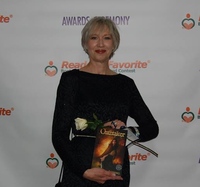 Patricia Reding
Patricia Reding
Author of Oathtaker
Patricia’s Website
Arriving in Aventown
The moon, now full, lit the way for the traveling entourage as it entered the village of Aventown. Dixon had described the town as “sleepy,” and so it seemed to be, in that few lights shown through any windows, although the hour was not yet late.
Clip. Clop. Clip. Clop. The travelers’ horses drummed a steady rhythm as they made their way down the cobblestone street, announcing their presence to anyone in the least interested. The sound startled Adele from her musings. Then just as she turned her thoughts inward again, unexpected laughter interrupted her reverie.
“What’s so funny?” Basha asked Jules who rode at her side.
“It looks like someone here held a contest for the wildest place names …
Thanks for following along with us as we write and live and breathe. It’s all the same thing. Please subscribe to my website so that I can send you (very infrequent) updates, stories, or quirkiness.
The very best to you.


 Robin Lythgoe
Robin Lythgoe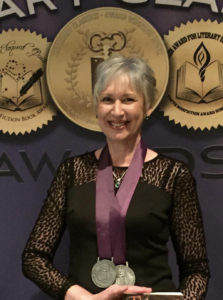 Patricia Reding
Patricia Reding Parker Broaddus
Parker Broaddus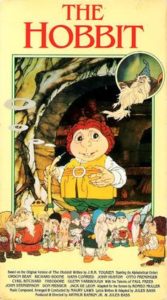


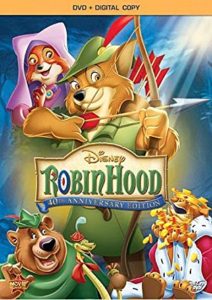
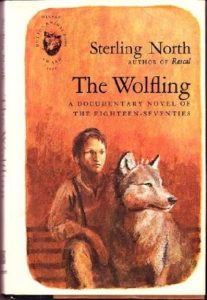



 luck on the path home to Greatwood. Luck deep in the twilight depths of unfellable trees. At some point in the past, there had been no such place to get a bit of extra luck, or shade, or at the least, something to break the monotony of the coastal trail.
luck on the path home to Greatwood. Luck deep in the twilight depths of unfellable trees. At some point in the past, there had been no such place to get a bit of extra luck, or shade, or at the least, something to break the monotony of the coastal trail.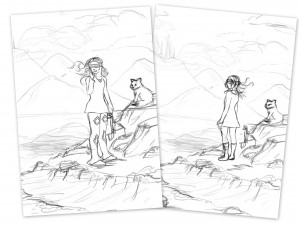 than a series of stick figures.
than a series of stick figures.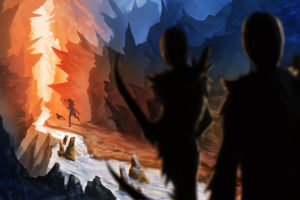
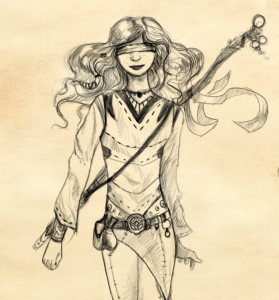

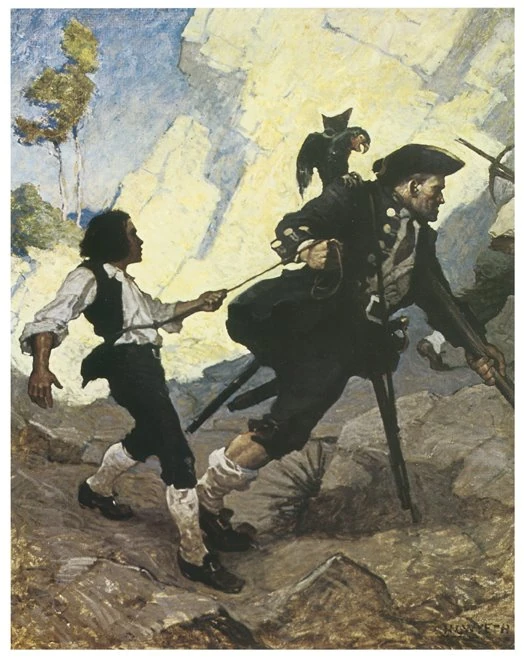
 Parker Broaddus
Parker Broaddus





 Patricia Reding
Patricia Reding

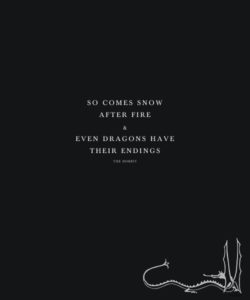 Willows does. “Home! That was what they meant, those caressing appeals, those soft touches wafted through the air, those invisible little hands pulling and tugging, all one way.”
Willows does. “Home! That was what they meant, those caressing appeals, those soft touches wafted through the air, those invisible little hands pulling and tugging, all one way.”